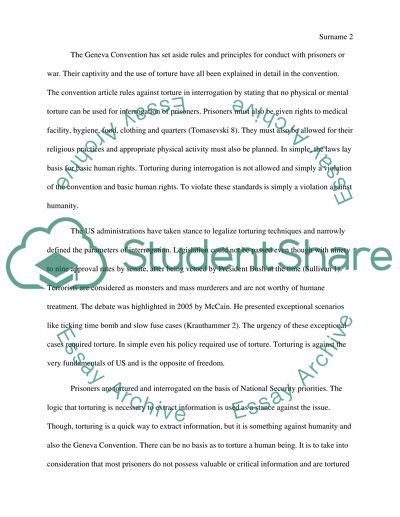Cite this document
(“Torture in Interrogation Essay Example | Topics and Well Written Essays - 1000 words”, n.d.)
Retrieved from https://studentshare.org/english/1447960-research-page-argue-for-or-against-the-use-of
Retrieved from https://studentshare.org/english/1447960-research-page-argue-for-or-against-the-use-of
(Torture in Interrogation Essay Example | Topics and Well Written Essays - 1000 Words)
https://studentshare.org/english/1447960-research-page-argue-for-or-against-the-use-of.
https://studentshare.org/english/1447960-research-page-argue-for-or-against-the-use-of.
“Torture in Interrogation Essay Example | Topics and Well Written Essays - 1000 Words”, n.d. https://studentshare.org/english/1447960-research-page-argue-for-or-against-the-use-of.


